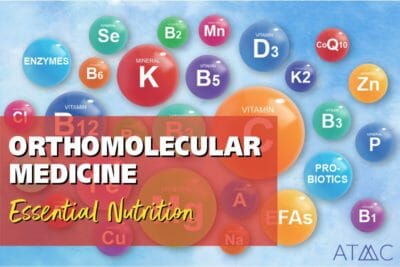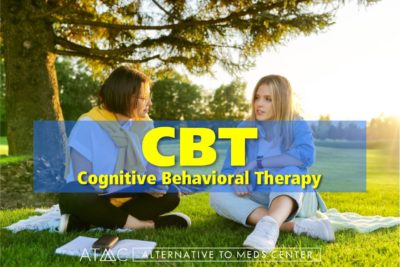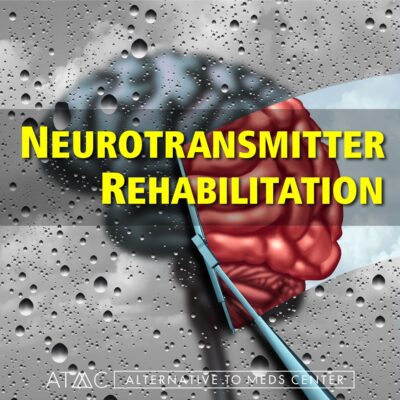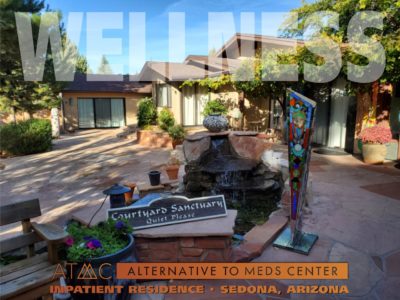1. Bellack A, “Psychosocial treatment in schizophrenia.” Dialogues in Clinical Psychology [Internet] 2001 Jun [cited 2022 June 20]
2. Kesby JP, Eyles DW, McGrath JJ, Scott JG. Dopamine, psychosis and schizophrenia: the widening gap between basic and clinical neuroscience. Transl Psychiatry. 2018 Jan 31;8(1):30. doi: 10.1038/s41398-017-0071-9. PMID: 29382821; PMCID: PMC5802623. [cited 2023 April 20]
3. Kerner B. (2009). Glutamate Neurotransmission in Psychotic Disorders and Substance Abuse. The open psychiatry journal, 3, 1–8. https://doi.org/10.2174/1874354400903010001 [cited 2023 April 20]
4. Sahoo, S., Mehra, A., & Grover, S. (2016). Acute Hyperglycemia Associated with Psychotic Symptoms in a Patient with Type 1 Diabetes Mellitus: A Case Report. Innovations in clinical neuroscience, 13(11-12), 25–27. [cited 2023 April 20]
5). Brown A. S. (2011). The environment and susceptibility to schizophrenia. Progress in neurobiology, 93(1), 23–58. https://doi.org/10.1016/j.pneurobio.2010.09.003 [cited 2023 April 20]
6) NAMI authors,. “What Are Possible Side Effects Of Aripiprazole?”. National Alliance on Mental Illness, published online Jan 2016 [cited 2022 June 20]
7. FDA Label Abilify (aripiprazole) as revised 2014 December [cited 2022 June 20]
8. Maglione M, Maher AR, Hu J, Wang Z, Shanman R, Shekelle PG, Roth B, Hilton L, Suttorp MJ, Ewing BA, Motala A, Perry T. Off-Label Use of Atypical Antipsychotics: An Update [Excerpt] Rockville (MD): Agency for Healthcare Research and Quality (US); 2011 Sep. Report No.: 11-EHC087-EF. PMID: 22132426. [cited 2022 June 20]
9. Shirzadi AA, Ghaemi SN. Side effects of atypical antipsychotics: extrapyramidal symptoms and the metabolic syndrome. Harv Rev Psychiatry. 2006 May-Jun;14(3):152-64. doi: 10.1080/10673220600748486. PMID: 16787887. [cited 2023 April 20]
10. Pizzorno J. (2016). Can We Say “Cure”?. Integrative medicine (Encinitas, Calif.), 15(5), 8–12. [cited 2023 April 20]
11. Turkington D, Dudley R, Warman DM, Beck AT. Cognitive-behavioral therapy for schizophrenia: a review. J Psychiatr Pract. 2004 Jan;10(1):5-16. doi: 10.1097/00131746-200401000-00002. PMID: 15334983.[cited 2022 June 20]
12. Rector NA, Beck AT. Cognitive behavioral therapy for schizophrenia: an empirical review. J Nerv Ment Dis. 2001 May;189(5):278-87. doi: 10.1097/00005053-200105000-00002. PMID: 11379970. [cited 2022 June 20]
13. Cunningham JEA, Shapiro CM. Cognitive Behavioural Therapy for Insomnia (CBT-I) to treat depression: A systematic review. J Psychosom Res. 2018 Mar;106:1-12. doi: 10.1016/j.jpsychores.2017.12.012. Epub 2017 Dec 24. PMID: 29455893. [cited 2022 June 20]
14. Schuch FB, Vancampfort D. Physical activity, exercise, and mental disorders: it is time to move on. Trends Psychiatry Psychother. 2021 Jul-Sep;43(3):177-184. doi: 10.47626/2237-6089-2021-0237. Epub 2021 Apr 21. PMID: 33890431; PMCID: PMC8638711. [cited 2024 Jan 11]
15. Dharmayani PNA, Juergens M, Allman-Farinelli M, Mihrshahi S. Association between Fruit and Vegetable Consumption and Depression Symptoms in Young People and Adults Aged 15-45: A Systematic Review of Cohort Studies. Int J Environ Res Public Health. 2021 Jan 18;18(2):780. doi: 10.3390/ijerph18020780. PMID: 33477603; PMCID: PMC7831325. [cited 2024 Jan 11]
16. Yuan X, Kang Y, Zhuo C, Huang XF, Song X. The gut microbiota promotes the pathogenesis of schizophrenia via multiple pathways. Biochem Biophys Res Commun. 2019 Apr 30;512(2):373-380. doi: 10.1016/j.bbrc.2019.02.152. Epub 2019 Mar 18. PMID: 30898321.[cited 2022 June 20]
17. Evans GW. The built environment and mental health. J Urban Health. 2003 Dec;80(4):536-55. doi: 10.1093/jurban/jtg063. PMID: 14709704; PMCID: PMC3456225. [cited 2022 June 20]
18. Hoffer, A. Megavitamin B-3 Therapy for Schizophrenia. Canadian Psychiatric Association Journal, Volume: 16 issue: 6, page(s): 499-504 December 1, 1971 [cited 2022 June 20]
19. Learning and Developmental Disabilities Initiative of the CDC, Mental Health and Environmental Exposures. published November.2008 [cited 2022 June 20]
20. Low Dog T. The role of nutrition in mental health. Altern Ther Health Med. 2010 Mar-Apr;16(2):42-6. PMID: 20232617. [cited 2022 June 20]
21. Kraal A Z et al., Could Dietary Glutamate Play a Role in Psychiatric Distress? Journal of Neurpsychobiology 2020; 79: 13-10 published February 2020 [cited 2022 June 20]
22. Knüppel A, Shipley MJ, Llewellyn CH, Brunner EJ. Sugar intake from sweet food and beverages, common mental disorder and depression: prospective findings from the Whitehall II study. Sci Rep. 2017;7(1):6287. Published 2017 Jul 27. doi:10.1038/s41598-017-05649-7 [cited 2022 June 20]
23. Guo X, Park Y, Freedman ND, et al. Sweetened beverages, coffee, and tea and depression risk among older US adults.PLoS One. 2014;9(4):e94715. Published 2014 Apr 17. doi:10.1371/journal.pone.0094715 [cited 2022 June 20]
24. Dazzan, P., Morgan, K., Orr, K.et al. Different Effects of Typical and Atypical Antipsychotics on Grey Matter in First Episode Psychosis: the ÆSOP Study. Neuropsychopharmacol 30,765–774 (2005). https://doi.org/10.1038/sj.npp.1300603 [cited 2022 June 20]
25. Prousky, Jonathan. (2014). The Clinical use of Orthomolecules in the Treatment of Schizophrenia: Critical Reflections and Commentary. Journal of Orthomolecular Medicine. 29. 141-153. [cited 2022 June 20]
26. Klauser, P., Xin, L., Fournier, M.et al. N-acetylcysteine add-on treatment leads to an improvement of fornix white matter integrity in early psychosis: a double-blind randomized placebo-controlled trial. Transl Psychiatry 8,220 (2018). https://doi.org/10.1038/s41398-018-0266-8 [cited 2022 June 20]
27. Aucoin M, LaChance L, Clouthier SN, Cooley K. Dietary modification in the treatment of schizophrenia spectrum disorders: A systematic review. World J Psychiatry. 2020 Aug 19;10(8):187-201. doi: 10.5498/wjp.v10.i8.187. PMID: 32874956; PMCID: PMC7439299. [cited 2022 June 20]
28. Ridaura V, Belkaid Y. Gut microbiota: the link to your second brain. Cell. 2015 Apr 9;161(2):193-4. doi: 10.1016/j.cell.2015.03.033. PMID: 25860600. [cited 2022 June 20]
29. Clapp M, Aurora N, Herrera L, Bhatia M, Wilen E, Wakefield S. Gut microbiota’s effect on mental health: The gut-brain axis. Clin Pract. 2017;7(4):987. Published 2017 Sep 15. doi:10.4081/cp.2017.987 [cited 2022 June 20]
30. Zhang S, Chen DC. Facing a new challenge: the adverse effects of antibiotics on gut microbiota and host immunity. Chin Med J (Engl). 2019;132(10):1135-1138. doi:10.1097/CM9.0000000000000245 [cited 2022 June 20]
31. Crinnion WJ. Environmental medicine, part one: the human burden of environmental toxins and their common health effects. Altern Med Rev. 2000 Feb;5(1):52-63. PMID: 10696119. [cited 2022 June 20]
32. Gu S, Huang R, Yang J, Sun S, Xu Y, Zhang R, Wang Y, Lu B, He T, Wang A, Bian G, Wang Q. Exposure-lag-response association between sunlight and schizophrenia in Ningbo, China. Environ Pollut. 2019 Apr;247:285-292. doi: 10.1016/j.envpol.2018.12.023. Epub 2019 Jan 14. PMID: 30685669. [cited 2022 June 20]


 Alternative treatments also include psychotherapy — we offer our clients many genres of effective talk therapy at the center.
Alternative treatments also include psychotherapy — we offer our clients many genres of effective talk therapy at the center. Research has shown psychosocial interventions can lead to an increase in mood stability, fewer and shorter hospitalizations, and improvement in other areas including interactions with others. Tragically, prescribers may begin switching to other drugs as a commonly used option, but the results may not be different. This often occurs when a person cannot tolerate the side effects or the drug simply does not “work” as hoped. However, most “replacement” antipsychotic drugs will have the same or additional adverse effects as Abilify. We feel a superior approach is to find effective natural Abilify alternatives, which can consist of a wide range of different therapies. For example, natural supplements, testing for nutritional deficiencies, correct diet,
Research has shown psychosocial interventions can lead to an increase in mood stability, fewer and shorter hospitalizations, and improvement in other areas including interactions with others. Tragically, prescribers may begin switching to other drugs as a commonly used option, but the results may not be different. This often occurs when a person cannot tolerate the side effects or the drug simply does not “work” as hoped. However, most “replacement” antipsychotic drugs will have the same or additional adverse effects as Abilify. We feel a superior approach is to find effective natural Abilify alternatives, which can consist of a wide range of different therapies. For example, natural supplements, testing for nutritional deficiencies, correct diet,  It is thought that neurotoxins can overstimulate or otherwise disrupt neurology. For instance, exposure to toxins can trigger an excessive release of dopamine. The genetics of a person are also associated with how well or how poorly the body clears toxins. A poor diet may lack vital nutrients. Zinc, niacin, vitamin B6, or vitamin C are needed for well-functioning neurochemistry. Other factors include low blood sugar, food preservatives, allergic reactions, and other problems that are associated with symptoms such as psychosis.4 Sensitive people are especially prone to such reactions. A physician prescribes antipsychotic medication to dampen dopamine expression. While antipsychotics do this very well, this, unfortunately, leaves the person without the enjoyment of rewards in life. Our
It is thought that neurotoxins can overstimulate or otherwise disrupt neurology. For instance, exposure to toxins can trigger an excessive release of dopamine. The genetics of a person are also associated with how well or how poorly the body clears toxins. A poor diet may lack vital nutrients. Zinc, niacin, vitamin B6, or vitamin C are needed for well-functioning neurochemistry. Other factors include low blood sugar, food preservatives, allergic reactions, and other problems that are associated with symptoms such as psychosis.4 Sensitive people are especially prone to such reactions. A physician prescribes antipsychotic medication to dampen dopamine expression. While antipsychotics do this very well, this, unfortunately, leaves the person without the enjoyment of rewards in life. Our  Our treatment center concentrates on cleaning out the accumulated toxins with a sauna cleanse.31
Our treatment center concentrates on cleaning out the accumulated toxins with a sauna cleanse.31







